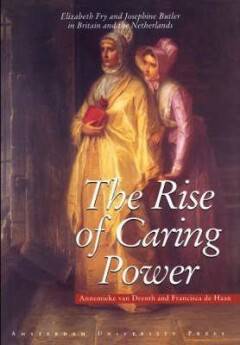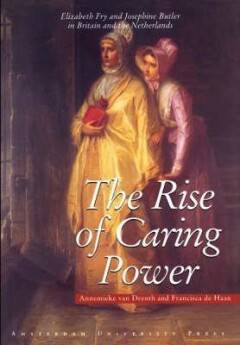
- Afhalen na 1 uur in een winkel met voorraad
- Gratis thuislevering in België vanaf € 30
- Ruim aanbod met 7 miljoen producten
- Afhalen na 1 uur in een winkel met voorraad
- Gratis thuislevering in België vanaf € 30
- Ruim aanbod met 7 miljoen producten
Zoeken
The Rise of Caring Power
Elizabeth Fry and Josephine Butler in Britain and the Netherlands
Annemieke Van Drenth, Francisca de Haan
Paperback | Engels
€ 55,95
+ 111 punten
Omschrijving
This original study discusses the role of women in developing and dispersing caring power and, vice-versa, the role of caring power in constituting 'women' as modern social subjects, processes which began around 1800. Based on the historian-/philosopher Foucault's concept of pastoral power, "caring power" also takes into account the vital role played by gender. Both humanitarian and religious motives fostered the ideal of serving the well-being of individual 'others' and thereby the interest of society as a whole. With the rise of caring power, this book argues, women began to feel responsible for 'those of their own sex' and to organize themselves in all-female organizations. In the process they carved out new gender identities for themselves and the women in their care. The authors illustrate this profound historical change with the work of the reformers Elizabeth Fry (1780-1845) and Josephine Butler (1828-1906) and trace their impact in Britain and the Netherlands.
Specificaties
Betrokkenen
- Auteur(s):
- Uitgeverij:
Inhoud
- Aantal bladzijden:
- 304
- Taal:
- Engels
Eigenschappen
- Productcode (EAN):
- 9789053563854
- Verschijningsdatum:
- 17/12/2007
- Uitvoering:
- Paperback
- Formaat:
- Trade paperback (VS)
- Afmetingen:
- 171 mm x 241 mm
- Gewicht:
- 553 g

Alleen bij Standaard Boekhandel
+ 111 punten op je klantenkaart van Standaard Boekhandel
Beoordelingen
We publiceren alleen reviews die voldoen aan de voorwaarden voor reviews. Bekijk onze voorwaarden voor reviews.







